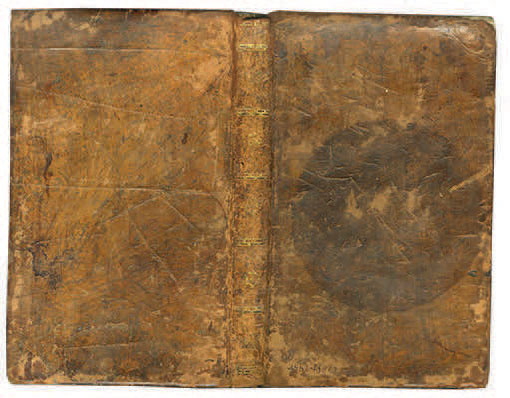In the Culinary Academy, I always start my lectures about the history of Georgian cuisine history with the following question:
• Who is the author of the fi rst Georgian culinary book, any ideas?
• Barbare Jorjadze.
I got such answers from those who have read or at least heard of the wonderful work - ‘Georgian Cuisine.’
Yes indeed, we all know that it was the first culinary publication and this fact is also highlighted in the preview of the fi rst book issued in 1874:
“I found it important to create this cookbook, because, as far as I know, there are no such books in the Georgian language” – Barbare Jorjadze.
She says “there is no such book ” and we - people interested in this case, believe it to be true.
It is a structurally balanced and very modern book for the 19th century, where, next to traditional Georgian dishes, housewives can fi nd a number of Russian and European recipes, but adapted with Georgian ingredients.
Barbare Jorjadze was a famous and active person of the time: a writer, public fi gure, defender of women’s right and a romantic. But apart from her literature works and active society position, she is most famous as the author of ‘Georgian Cuisine.’
This book will give you a sense of coziness, like grandma’s warm and comfortable skirts and vanilla- smelling fingers, as a flaming oven and bubbling aromatic dish, calmness and warmth, the real majestic world of housewives… We should definitely talk about this book in future.
But her book was not actually the first Georgian cookbook! Several years ago, a friend of mine and publisher Gia Karchkhadze took me to the Literature Museum to meet Lasha Bakradze (Literature Museum director) to show me what I had been waiting for a long time.
It was a book by Bagrat Bagrationi, published 60 years before the illustrious work of Barbare Jorjadze. The author was a grandson of Georgian King Erekle II and the son of Giorgi XII, the last King of Kartl-Kakheti; he was a belligerent, a politician, writer and a person in compulsory emigration. This was the first book about Georgian cuisine.
It was a real discovery for me, considerably changing my explorations of Georgian cuisine art. A small format book (approximately 10 X 15 cm), in a beautiful leather cover, it boasts magnifi cent Georgian font and is graphically decorated and painted in a minimalistic and oriental style.
The author has a modern language and writing manner; as he notes in the preview, most recipes are taken from Russian cookbooks, which in turn are almost an analogue of French cuisine, but are adapted to Georgian reality…
As soon as I saw the book, I realized it needed to be republished.
Fortunately, the author and publisher of the ‘new’ edition were standing together in that room. We did not talk too much; all of us sharing the same opinion: This book had to be published again! We agreed that the book would begin life anew from April, 2017, 199 years after it was first released.
The Kakha Bendukidze Culinary Academy and a number of motivated young people and successful chefs are involved in this project, adding extra ‘culinary’ weight to the book.
Working on this book is time consuming, but exciting. Adapting recipes is quite a long and thorough process, in order to explore the authentic taste of that period and get closer to the perspective of the author, you have to cook all the dishes according to the original recipes within. You also need to take into consideration the gustatory habits and traditions of that time, and in addition the author gives free interpretation of recipes and often does not give exact information about measurements or even, in some cases, exact ingredients.
So, in order to make these dishes interesting and tasty, it is necessary to follow modern tendencies and culinary aspirations, which is why experienced and talented chefs have been giving me a hand.
Moreover, apart from experiencing true culinary aspirations, I also started to study the life of the author and political, social and economic events around him and I found one interesting thing - Barbare Jorjadze and Bagrat Bagrationi created these books not only as an introduction to new gustatory and food norms, but also in an attempt to popularize culinary aspirations and cultural-social issues in general.
Both of them tried to bring European cuisine to Georgia and it was a kind of effort to broaden horizons and change reality for the better in a period when Georgia was facing the gloomy reality of existential questions.
Challenges have not much changed during the last three centuries and today we are still trying to fi nd responses to those questions: brittle independency, territory occupation, ineffectiveness of state institutions, the low level of civic education, ambiguous political orientation, treason, unreliability, thinking only about ‘stomachs’, being unaware of your own history…
All these problems can be improved by becoming a plenipotentiary member of western civilization, or joining the European Union or NATO, which first of all can be achieved with the propaganda of western culture and by growing the educational level. It is not so complicated if we unite our affords and especially if there is a strong will from statesmen. We had such a historical chance at the beginning of the 21st century and if we achieve it, the attempts of Barbare Jorjadze, Bagrat Bagrationi and other enthusiastic people won’t be lost in vain.
I want to express my gratitude to Bagrat Bagrationi, who, despite of living in a very diffi cult time 200 years ago, did not give up, did not mix with Russian reality and maintained true feelings for his motherland and who, with his approach, now fi lls me with new breath and energy.
Getting back to his cookbook, I will continue my talk once I am more prepared with the new edition, photos and new recipes in 2017.

